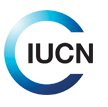The latest volume of 'Policy Matters,' a peer-reviewed journal published by the International Union for Conservation of Nature (IUCN) Commission on Environmental, Economic and Social Policy (CEESP), investigates the benefits and shortfalls of voluntary certification standards (VCS) for biodiversity and human livelihoods.
The ten papers of the volume outline several examples of successful VCS; however the cases presented also show that there is a need to develop methods to evaluate the impacts of VCS schemes and to strengthen the relationship between certification schemes and public institutions.
 5 September 2016: The latest volume of ‘Policy Matters,’ a peer-reviewed journal published by the International Union for Conservation of Nature (IUCN) Commission on Environmental, Economic and Social Policy (CEESP), investigates the benefits and shortfalls of voluntary certification standards (VCS) for biodiversity and human livelihoods. The ten papers of the volume outline several examples of successful VCS; however the cases presented also show that there is a need to develop methods to evaluate the impacts of VCS schemes and to strengthen the relationship between certification schemes and public institutions.
5 September 2016: The latest volume of ‘Policy Matters,’ a peer-reviewed journal published by the International Union for Conservation of Nature (IUCN) Commission on Environmental, Economic and Social Policy (CEESP), investigates the benefits and shortfalls of voluntary certification standards (VCS) for biodiversity and human livelihoods. The ten papers of the volume outline several examples of successful VCS; however the cases presented also show that there is a need to develop methods to evaluate the impacts of VCS schemes and to strengthen the relationship between certification schemes and public institutions.
Released during a special event at the sidelines of the 2016 IUCN World Conservation Congress (WCC), the volume titled ‘Certification and Biodiversity: How Voluntary Certification Standards Impact Biodiversity and Human Livelihoods,’ aims to describe and evaluate the performance of VCS in protecting and enhancing biodiversity and human livelihoods. The introduction notes that VCS include principles, criteria, indicators and implementation mechanisms that may be incorporated with a company’s own standards or integrated with national regulatory systems.
The papers in the volume address, inter alia, the following themes: measuring and documenting impacts of VCS on biodiversity and human livelihoods; creating synergies between VCS and regulatory frameworks; consistency of VCS; competition between VCS schemes; and effective VCS governance.
One of the papers provides a meta-review of 29 VCS, whereas other papers focus on specific case studies, such as, for example: sustainable palm oil certification; “supply-side interactions” between governments and VCS in scaling up sustainable commodity production; the role of forest governance schemes for biodiversity and human livelihoods; stakeholder participation in VCS schemes around the world; alternative labeling schemes; and incorporation of the rights of indigenous peoples in VCS schemes.
In related news, the importance of VCS for sustainable palm oil production was underscored in a motion tabled for approval by IUCN Members on mitigating the impacts of oil palm expansion and operations on biodiversity. The draft motion expresses concern that development of industrial-scale oil palm plantations often takes place without “appropriate consideration for negative biodiversity and social impacts it causes […].” It urges IUCN Members and the private sector to create mechanisms that support small-holders to improve environmental performance, including access certification systems. [IUCN Press Release] [Publication: Policy Matters – Issue 21 – September 2016: Certification and Biodiversity: How Voluntary Certification Standards Impact Biodiversity and Human Livelihoods] [Draft motion on mitigating the impacts of oil palm expansion and operations on biodiversity] [IISD RS Coverage of IUCN WCC]